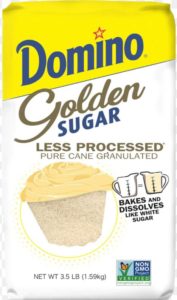Industry-funded studies: The Sugar Association’s view
You may think, as I do, that everyone would be better off eating less sugar, but that’s not how The Sugar Association sees it. This trade association for sugar producers funds research to demonstrate that eating sugar is a good thing and not harmful.
Here’s what The Sugar Association says:
The Sugar Association is committed to transparent engagement with researchers, external partners and consumers to address knowledge gaps and support independent, peer-reviewed science. Recent literature suggests this framework, rooted in transparency and communication and reflected in our Operating Principles, leads to increased public confidence in industry-funded research,* a goal the organization is working to achieve.
The asterisk refers to Achieving a transparent, actionable framework for public-private partnerships for food and nutrition research, a consensus report written by, among others, representatives of the International Life Sciences Institute, a well known front group for the food industry, and other organizations with ties to food companies.
The Sugar Association lists some of its recent publications [you can’t make this stuff up]:
- Bakke AJ, Stubbs CA, McDowell EH, Moding KJ, Johnson SL, Hayes JE. Mary Poppins was right: Adding small amounts of sugar or salt reduces the bitterness of vegetables. Appetite. 2018. doi: 10.1016/j.appet.2018.03.015. [Mary Poppins was talking about medicine, not vegetables: “Just a spoonful of sugar helps the medicine go down, In a most delightful way.”]
- Bailey RL, Fulgoni VL, Cowan AE, Gaine PC. Sources of Added Sugars in Young Children, Adolescents, and Adults with Low and High Intakes of Added Sugars. Nutrients. 2018;10(1):102.
Nutrition Today Supplement: Sweet Taste Perception and Feeding Toddlers. March/April 2017 – Volume 52 [The Sugar Association funded the conference that resulted in this supplement, which it also funded].
- Dwyer JT. Good Nutrition in Toddlers. Nutrition Today. 2017;52(2):S1-S2.5.
- Bailey RL, Barr SI. Introduction: Sweet Taste Perception and Feeding Toddlers. Nutrition Today. 2017;52(2):S3-S5.
- Achterberg C. A Perspective: Toddler Feeding, Science, and Nutrition Policy. Nutrition Today. 2017;52(2):S6-S13.
- Kleinman RE, Greer F, Cowart BJ, et al. Roundtable Proceedings: The Role of Innate Sweet Taste Perception in Supporting a Nutrient-Dense Diet for Toddlers, 12 to 24 Months Old. Nutrition Today. 2017;52(2):S14-S24. [Kleinman is co-chair of the 2020 Dietary Guidelines Advisory Committee]
- Murray RD. Influences on the Initial Dietary Pattern Among Children From Birth to 24 Months. Nutrition Today. 2017;52(2):S25-S29.Johnson SL, Hayes JE. Developmental Readiness, Caregiver and Child Feeding Behaviors, and Sensory Science as a Framework for Feeding Young Children. Nutrition Today. 2017;52(2):S30-S40.
- Hayes JE, Johnson SL. Sensory Aspects of Bitter and Sweet Tastes During Early Childhood.Nutrition Today. 2017;52(2):S41-S51.
- Moshfegh AJ, Rhodes DG, Goldman JD, Clemens JC. Characterizing the Dietary Landscape of Children, 12 to 35 Months Old. Nutrition Today. 2017;52(2):S52-S59.
- Welsh JA, Figueroa J. Intake of Added Sugars During the Early Toddler Period. Nutrition Today. 2017;52(2):S60-68.
- Palmer CA. Oral and Dental Health Considerations in Feeding Toddlers. Nutrition Today. 2017;52(2):S69-S75.


